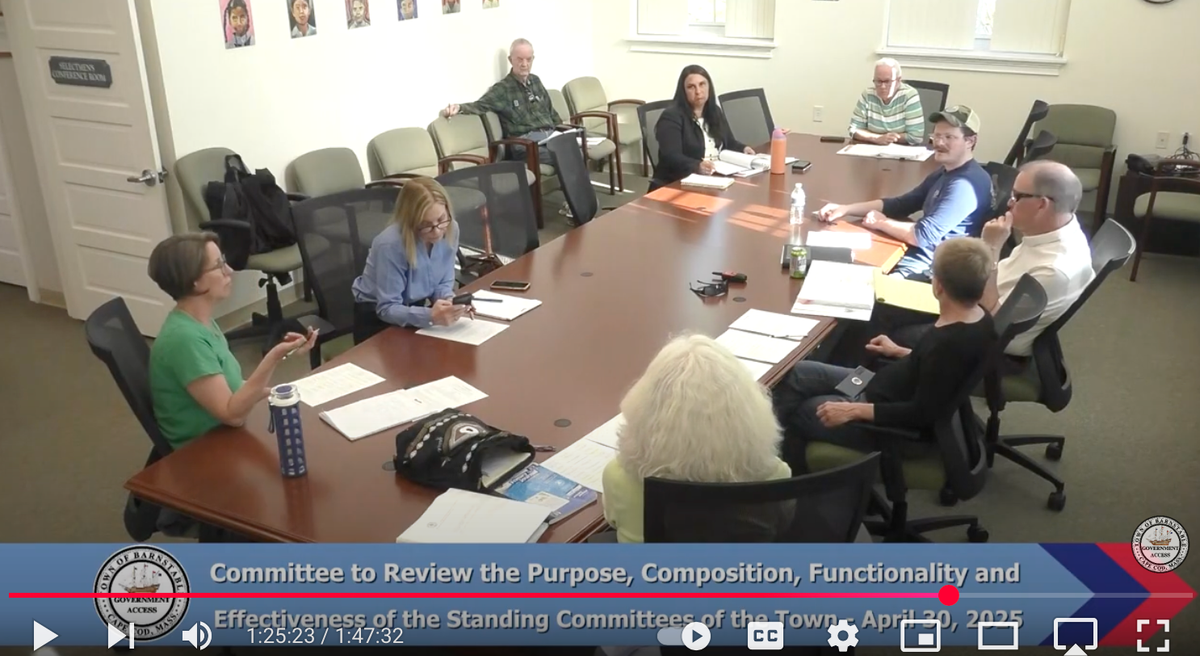Ad Hoc Sub-Committee on Committees | April 30, 2025
The meeting focused on reviewing the purpose, functionality, and effectiveness of the town's standing committees, with a particular emphasis on conflict of interest policies and procedures for committee members.

Watch the meeting. AI supported summary below. Corrections welcome.
Main Topic
The meeting focused on reviewing the purpose, functionality, and effectiveness of the town's standing committees, with a particular emphasis on conflict of interest policies and procedures for committee members.
Key Points
- Conflict of Interest Training: New committee members receive information about open meeting laws and conflict of interest upon being sworn in. They are supposed to complete an online training program managed by the state.
- Tracking Compliance: The responsibility for tracking whether committee members complete the online conflict of interest training largely falls on the individual committees, particularly if they have a staff liaison. However, there's a lack of consistent data on whether this tracking is effectively done.
- State Oversight: The state tracks completion of the conflict of interest training and sends reminders for renewal every two years.
- Due Diligence vs. Enforcement: The committee discussed the balance between informing members of their obligations and ensuring compliance, with concerns raised about a potential "drop off" in accountability.
- Application Form Review: The town manager is reworking the language on the application form for boards, and this revised language could be shared with the committee.
- Consequences for Violations: A key point of contention was whether there should be stricter consequences, including removal from a committee, for members who knowingly violate conflict of interest rules.
- Existing Mechanisms: It was pointed out that mechanisms already exist for addressing ethics violations, including filing complaints with the state Ethics Commission and conducting internal investigations by the Town Council.
- Education vs. Punishment: The discussion highlighted the Ethics Commission's focus on education and helping people comply with the law, rather than solely pursuing punishment.
- Complexity of Ethics Law: The complexity of ethics laws and the potential for unintentional violations were emphasized.
- Robust Application: The committee discussed the need for a more robust application process that clearly outlines expectations and consequences for violating conflict of interest rules.
